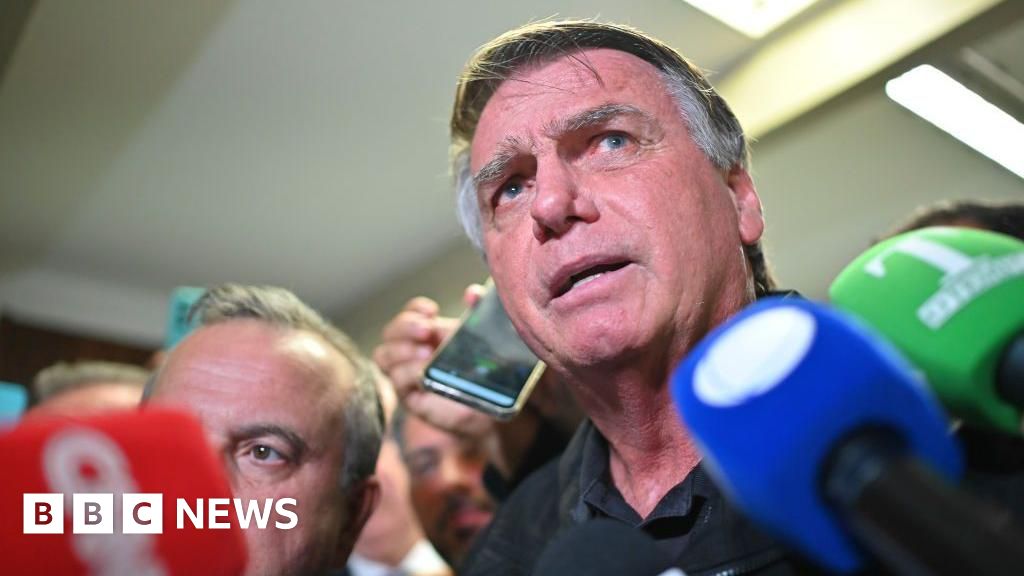Ozy Media co-founder Carlos Watson found guilty | Media News
Former TV personality Carlos Watson has been convicted in a federal financial conspiracy case about Ozy Media, an ambitious startup that collapsed after another executive impersonated a YouTube executive to hype the company’s success.
Watson, 53, had been free on bail but was taken into custody to await sentencing after the verdict was announced on Tuesday.
Brooklyn-based United States Attorney Breon Peace said the verdict held Watson accountable for “brazen crimes” that were meant to keep cash-strapped Ozy afloat but ultimately sank it.
“The jury found that Watson was a con man who told lie upon lie upon lie to deceive investors into buying stock in his company,” Peace said in a statement, adding that the company “collapsed under the weight of Watson’s dishonest schemes”.
Peace’s office said a jury found Watson guilty of all the charges against him: conspiracy to commit securities fraud, conspiracy to commit wire fraud and aggravated identity theft. Ozy Media also was convicted of the same conspiracy offences, the only charges the company faced.
Watson and Ozy had pleaded not guilty and denied the allegations. He testified that Ozy’s cash squeezes were standard startup speed bumps and that material given to investors noted that the information was not audited and could change – “like ‘buyer beware’”, he said.
The defence blamed any misrepresentations on Ozy co-founder and chief operating officer Samir Rao, who has pleaded guilty.
Watson and Ozy plan to appeal, lawyers Ronald Sullivan, Janine Gilbert and Shannon Frison said in a statement.
Watson could face decades in prison, though sentencing guidelines for individual defendants vary. Now-defunct Ozy faces potential financial penalties.
Web of lies
Watson, a cable news host who had worked on Wall Street and sold his own education-related startup, conceived Ozy in 2012. The Mountain View, California-based company produced shows and gave “Ozy Genius” awards to college students. It interviewed former President Bill Clinton, won an Emmy Award and produced an annual music-and-ideas festival that President Joe Biden attended in 2017, as a former vice president.
But prosecutors said that underneath Ozy’s hip public profile, the company was tottering financially from 2018 on. It routinely ran short of money to pay vendors, rent and even employees and took out expensive loans against future receipts to cover its bills, former finance vice president, Janeen Poutre, testified.
The prosecution and its key witnesses said Ozy, with Watson’s blessing, began floating increasingly audacious lies to try to snag a lifeline from investors.
“Survival within the bounds of decency, fairness, truth, it morphed into survival at all costs and by any means necessary,” Rao told jurors, saying that Watson had sanctioned all his falsehoods.
Ozy gave much bigger revenue numbers to its prospective backers than to its accountants, with the discrepancy widening to $53m versus $11.2m for 2020, according to testimony and documents shown at trial.
Prosecutors said the company claimed deals and offers it had not really secured – for example, that Watson told a prospective investor that Google was willing to buy Ozy for hundreds of millions of dollars. Ozy’s lawyer said Watson never made that claim.
Google CEO Sundar Pichai testified there was no such offer, though he did contemplate hiring Watson and providing $25m to help Ozy move on if he took the Google job.
To woo potential corporate suitors and lenders, Rao forged some terms of contracts with a network for one of Ozy’s TV shows. Then, when a bank wanted to check with the network, Rao set up a fake email account for an actual network executive and sent a message offering information. The bank loan didn’t happen.
Rao went on to pose as a YouTube executive on a phone call with investment bankers, in a bizarre effort to back up a false claim that Rao had made about YouTube paying for another Ozy show. The bankers got suspicious, their potential investment evaporated and the real YouTube exec soon learned of the ruse.
Watson’s lawyers hammered on Rao’s admissions about his own conduct to try to portray him as a liar attempting to avoid prison by pleasing prosecutors. Rao is awaiting sentencing.
Watson, who hosted multiple Ozy shows and podcasts, told jurors he concentrated on the company’s content, staff, vision and partnerships more than on “making sure that every decimal is in the right place”. He said he travelled about four days a week and left finance and operations largely to Rao and others.
“I couldn’t be as hands-on as I probably wanted to be,” he testified.
Ozy rapidly unravelled after The New York Times revealed Rao’s faux call in a September 2021 column that also questioned the start-up’s claims about its audience size.
Check out our Latest News and Follow us at Facebook
Original Source







